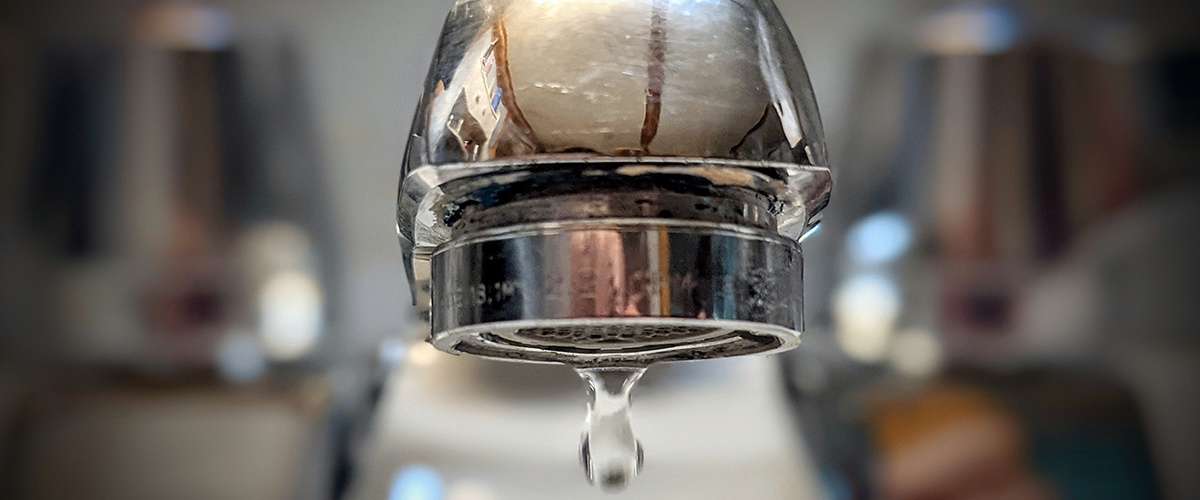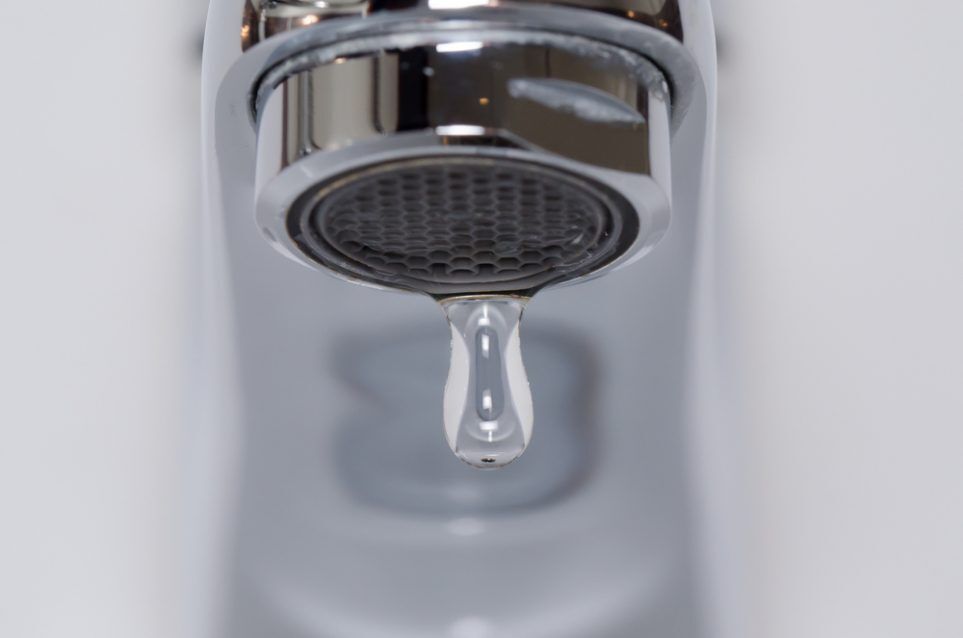The Relevance of Resolving a Dripping Faucet
The Relevance of Resolving a Dripping Faucet
Blog Article
What're your thoughts and feelings about Water Dripping from Faucet: Why and How to Fix?

Leaking taps might feel like a small hassle, however their influence surpasses simply the inconvenience of the audio. From wasting water to sustaining unnecessary economic costs and wellness risks, disregarding a trickling tap can lead to different repercussions. In this write-up, we'll delve into why it's vital to resolve this common home problem without delay and effectively.
Wastage of Water
Environmental Effect
Trickling taps add dramatically to water wastage. According to the Environmental Protection Agency (EPA), a single faucet leaking at one drip per secondly can lose greater than 3,000 gallons of water each year. This not just stress water sources yet additionally influences ecosystems and wildlife dependent on them.
Financial Costs
Enhanced Water Bills
Beyond the environmental impact, dripping faucets can inflate water bills substantially. The accumulated wastage over time translates into greater energy expenditures, which might have been prevented with timely repair work.
Potential Home Damage
Moreover, prolonged trickling can bring about harm to fixtures and surfaces bordering the tap. Water build-up can cause discoloration, deterioration, and even structural issues if left neglected, causing extra repair work prices.
Wellness Issues
Mold and Mold Growth
The constant visibility of wetness from a leaking tap produces an optimal environment for mold and mildew and mildew development. These fungis not just compromise interior air quality however also present health threats, particularly for individuals with respiratory conditions or allergies.
Waterborne Diseases
Stagnant water in trickling taps can become a breeding ground for bacteria and other microorganisms, increasing the risk of waterborne illness. Contaminants such as Legionella bacteria flourish in stationary water, possibly causing significant illnesses when consumed or breathed in.
DIY vs. Specialist Fixing
Pros and Cons of Do It Yourself Repair Service
While some may attempt to deal with a trickling tap themselves, do it yourself repair work include their very own set of obstacles. Without correct knowledge and devices, DIY efforts can worsen the issue or cause insufficient repair services, prolonging the problem.
Benefits of Hiring a Specialist Plumber
Employing a specialist plumber makes sure that the underlying source of the leaking faucet is addressed efficiently. Plumbing professionals possess the proficiency and devices to identify and fix tap concerns efficiently, saving time and minimizing the threat of further damage.
Step-by-Step Overview to Repairing a Dripping Faucet
Tools Needed
Prior to trying to fix a leaking tap, collect the essential tools, including an adjustable wrench, screwdrivers, replacement components (such as washing machines or cartridges), and plumber's tape.
Usual Faucet Issues and Their Solutions
Identify the kind of faucet and the certain concern creating the drip. Usual problems include worn-out washers, corroded shutoff seats, or malfunctioning O-rings. Refer to supplier directions or online tutorials for step-by-step assistance on repairs.
Safety nets
Regular Upkeep Tips
To prevent leaking taps, execute regular upkeep such as cleaning aerators, examining for leakages, and changing damaged components promptly. Additionally, take into consideration mounting water-saving gadgets or updating to extra effective fixtures.
Importance of Prompt Fixes
Addressing leaking faucets as quickly as they're observed stops further water wastage and prospective damage, eventually conserving both water and cash over time.
Influence On Residential Or Commercial Property Value
Understanding of Well-Maintained Residential Property
Keeping a property in good condition, consisting of resolving maintenance concerns like leaking taps, enhances its regarded value and worth among potential customers or lessees.
Influence on Resale Worth
Qualities with well-kept plumbing components, consisting of faucets, command greater resale values in the property market. Dealing with leaking faucets can add to a favorable perception throughout residential property examinations and settlements.
Environmental Duty
Specific Contribution to Preservation
Taking obligation for dealing with trickling taps aligns with wider efforts towards water conservation and ecological sustainability. Every person's activities jointly make a substantial influence on preserving precious sources.
Lasting Living Practices
By focusing on punctual repairs and adopting water-saving practices, people contribute to sustainable living practices that benefit both existing and future generations.
Verdict
Addressing a trickling faucet surpasses plain convenience; it's a crucial action towards preserving water, lowering economic expenses, and protecting health and wellness and property. Whether through do it yourself fixings or professional support, acting to fix dripping faucets is a little yet impactful means to promote accountable stewardship of resources and contribute to a healthier, much more sustainable future.
How to Fix a Leaky Faucet: Step-by-Step Repair Guide
A leaky faucet may seem like a simple annoyance, but if it's not fixed promptly, that leak could cost hundreds to potentially thousands. From water damage to mold, mildew, and high water bills, even a tiny leak can be catastrophic if left unattended. Damage like this can even affect the overall value of your home, so it's important to take the right approach for leaky faucet repair. You may need the help of a plumber in some cases, but we've got a few tips you can try on how to fix a leaky faucet before calling the pros.
Four Faucet Types
When you're learning how to fix a leaky faucet, the first step is knowing what kind of faucet you're working with! There are four common types.
Cartridge Faucets
Cartridge faucets come in one- or two-handled varieties. In one-handled cartridge faucets, hot and cold water combines in a single cartridge. In the two-handled versions, hot and cold water are controlled separately and mixed in the faucet.
Ball Faucets
Ball faucets have a single lever you push up and down to adjust the pressure and rotate to change the temperature. A slotted metal ball controls the amount of water allowed into the spout.
Compression Washer Faucets
They're the oldest type of faucet, but they're still used in many homes — especially older ones. Compression faucets have two separate handles that, when turned, raise or lower the washer that seals a water valve. This valve stops water from flowing through the faucet when it is turned off.
Disc Faucets
Disc faucets rarely need to be repaired due to their maintenance-free design. The water flow is controlled by two discs — the upper one raises and lowers against a fixed lower disc, creating a watertight seal. If your disc faucet starts leaking, you may need to replace the seals or clean residue buildup from the inlets.
Fixing a Leaky Faucet
Step 1: Turn Off the Water
Whether you're learning how to fix a leaky bathtub faucet or how to fix a leaky kitchen faucet, always turn off the water supply to your working area when you're fixing a leak. The last thing you want is a flood added to your list of things to fix.
Look for the shutoff valves below your sink or around the tub and turn them clockwise to stop the water flow. If your faucet doesn't have shutoff valves, you may need to turn off the water for the whole house. Check to make sure it's off by turning the faucet on. If nothing comes out, you're ready to start the repair.
Step 2: Take Apart the Faucet
How you disassemble your faucet depends on the type of fixture you have. You can use a flathead screwdriver to remove the caps on top of the handle or handles for cartridge and compression faucets. Inside, you should see handle screws. Unscrew these with a screwdriver to remove the handle.
Disc- and ball-style faucets will typically have an inlet screw near the handle, and removing that will reveal the interior of the faucet.
Detach the Valve Stem
For cartridge- and compression-style faucets, you'll see the inner valve stem or cartridge once you remove the faucet handles. If you have a compression faucet, unscrew the brass valve stem. If you have a cartridge faucet, pull out the cartridge. If your cartridge has been in place for a while, it may require some tools or extra force to remove it due to mineral deposits.
Examine and Replace Parts
Once you've removed the parts, check them out to confirm what needs to be replaced. You may see corroded rubber washers, O-rings, stems, or cartridges. On a ball-style faucet, check the seats and springs for damage.
If you need to repair a leaky disc faucet, check the inlet and seals on the lower disc.
Once you determine what parts must be replaced, visit your local hardware store. Bring the damaged parts with you to ensure you can purchase the correct components to replace them.
Clean Valves and Faucet Cavity
If you've removed a stem or cartridge, you may notice mineral buildup in the faucet's threads. Use white vinegar to clean the valve seat by soaking it for a few minutes, then scrub it away with a soft toothbrush and rinse with warm water. You can also clean the interior of the faucet in the same way.
Reassemble the Faucet
Once your faucet is cleaned and the required parts have been replaced, it's time to reassemble it. Put the pieces back together and slowly turn the water supply back on. Doing this slowly is crucial because too much initial water pressure can damage the new hardware you've just installed.
https://homewarranty.firstam.com/blog/how-to-fix-leaky-faucet

I came across that content about Should I Repair or Replace a Leaky Faucet? when perusing the web. In case you liked our blog posting if you please make sure you remember to pass it around. Thanks a lot for taking the time to read it.
Report this page